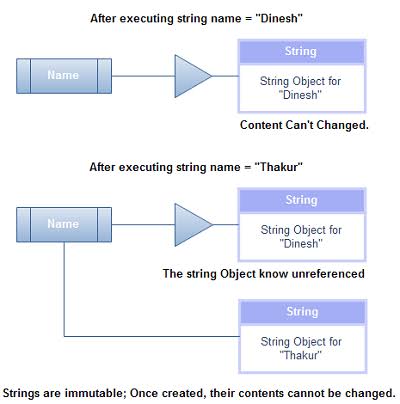What Is Unalterable Strings and Exactly How It Functions
In the realm of programs, comprehending the principle of unalterable strings is vital for creating robust and safe applications. Unalterable strings refer to strings that can not be modified after they are produced, making sure information integrity and predictability within the code. This basic concept plays a crucial duty in various shows languages and supplies a special technique to managing information. By discovering the intricacies of just how unalterable strings operate, one can reveal a world of benefits and possibilities that can boost the top quality and efficiency of software program advancement.
The Basics of Immutable Strings
Immutable strings, as a basic idea in programming, are character sequences that can not be changed once they are created. This means that once a string is designated a value, that value can not be modified. In languages like Python and Java, strings are immutable items, causing numerous ramifications in terms of memory management and information stability.
Among the crucial benefits of immutable strings is that they offer a complacency in data control. Considering that the material of an unalterable string can not be modified, it ensures that the initial information stays undamaged, reducing the threat of unintentional adjustments during program execution (Why are strings immutable in Java?). This building additionally streamlines debugging processes, as programmers can rely on that once a string is defined, its value will not be unintentionally altered
When a brand-new string is created based on an existing one, instead than changing the original string, the brand-new value is saved individually. Overall, understanding the essentials of immutable strings is critical for understanding programming ideas and optimizing code effectiveness.
Benefits of Immutable Strings
Building upon the security and performance advantages of unalterable strings, their benefits include enhancing code dependability and simplifying concurrent programs jobs. By being unalterable, strings can not be changed after production, which removes the danger of unplanned adjustments in the information they save. This intrinsic immutability makes sure that when a string is created, its worth remains consistent throughout the program's execution, lowering the chances of pests created by unforeseen alterations.
Additionally, unalterable strings add to code reliability by making it simpler to reason about the state of a program. Since strings can not be altered, developers can rely on that a string will always hold the same value, simplifying debugging and upkeep efforts. This predictability results in a lot more dependable and secure codebases.
Application in Shows Languages
Within different programs languages, the incorporation of immutable strings is an essential facet that influences exactly how information is handled and controlled within code frameworks. The execution of unalterable strings varies throughout various programs languages, with each language supplying its own devices to support this concept.

On the other hand, languages like C and C++ do not have built-in support for unalterable strings. Programmers in these languages should manually apply immutability by imposing guidelines within their code to stop straight adjustments to string things.
Finest Practices for Working With Unalterable Strings
When managing unalterable strings in programming languages like Java and Python, sticking to ideal practices ensures protected and reliable information adjustment. One of the crucial best practices is to use StringBuilder or StringBuffer as opposed to directly adjusting strings, especially when handling substantial concatenation operations. These courses supply mutable choices for string manipulation, aiding to stay clear of unnecessary memory allowances and enhancing performance.
In addition, when functioning with delicate data such as passwords or API tricks, it is crucial to stay clear of storing them as simple text in unalterable strings. Making use of safe and secure storage space devices like char arrays or specialized collections for handling delicate details aids reduce safety dangers associated with unalterable strings.
Real-world Applications and Instances
Checking out useful applications of immutable strings in various industries discloses their considerable effect on data stability and system reliability. In the medical care field, immutable strings play a his response vital role in guaranteeing the protection and confidentiality of patient data. By protecting against unauthorized alterations to sensitive details such as medical documents and prescriptions, unalterable strings help keep compliance with strict personal privacy guidelines like HIPAA.
Monetary institutions additionally take advantage of the unalterable nature of strings to enhance the safety and security of customer data and transaction records. Unalterable strings aid prevent fraudulence and unapproved alterations to economic info, supplying a robust protection versus cyber risks and making sure the trust fund and self-confidence of clients.

Conclusion
Finest methods for working with unalterable strings consist of staying clear of direct modifications and utilizing methods that return brand-new string objects. Real-world applications of immutable strings include data encryption, caching, and string adjustment tasks.
Immutable strings refer to strings that can not be changed after they are developed, guaranteeing information honesty and predictability within the code. When a new string is produced based on an existing one, instead than modifying the initial string, the new value is stored individually.In languages like Java and Python, strings are immutable by default, meaning that once a string item is produced, its value can not be altered - Why are strings immutable in Java?. Finest techniques for functioning with unalterable strings consist of preventing straight modifications and making use of approaches like it that return new string things. Real-world applications of immutable strings consist of information encryption, caching, and string manipulation tasks